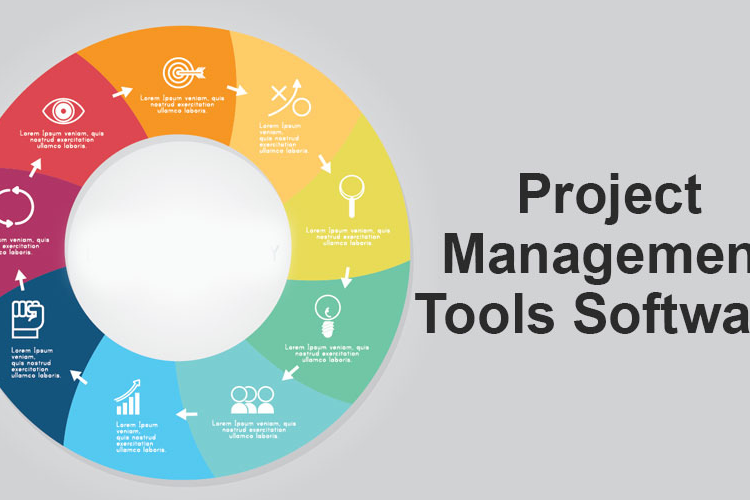Working in a bustling Texas city, analyzing data to identify emerging health trends or collaborating with local leaders to implement public health initiatives can be an exciting reality for many MPH graduates in Texas. These professionals are at the forefront of tackling pressing public health challenges, from chronic disease prevention to environmental health hazards. Choosing the right MPH degree program can equip you with the tools and knowledge to make a real difference in the lives of Texans.
Toc
Why Earn an MPH Degree in Texas?

Texas is a prime location for pursuing an MPH degree, thanks to its robust public health job market and diverse educational offerings.
Strong Public Health Job Market
Texas consistently ranks among the nation’s leaders in healthcare support occupations, reflecting a strong demand for public health professionals. Job roles such as epidemiologists, community health workers, and health policy analysts are projected to see considerable growth. According to recent statistics, the median annual salary for epidemiologists in Texas was $80,970 in May 2022, while community health workers earned around $44,990.
Texas’s diverse population and growing urban centers present unique public health challenges, particularly in areas like chronic disease prevention, mental health, and access to healthcare. For example, the rise of diabetes in the state has led to increased demand for diabetes educators and public health professionals specializing in chronic disease management. Additionally, the growing Hispanic population in Texas has created a need for bilingual public health professionals who can effectively communicate and address health disparities within this community. This promising job outlook makes pursuing an MPH degree in Texas a worthwhile investment.
Diverse Program Options
Texas universities offer a vibrant tapestry of MPH degree programs, catering to diverse learning styles and preferences, ensuring students find a program that fits their unique needs. Whether you prefer traditional on-campus settings, flexible online formats, or hybrid options, you’ll find a program that accommodates your lifestyle. This flexibility allows you to balance your studies with personal and professional commitments while gaining essential knowledge in public health.
For example, the University of Houston offers a traditional on-campus MPH program, while the University of Texas at Arlington provides a fully online MPH program designed for working professionals. The University of North Texas also offers a hybrid MPH program that combines online coursework with on-campus experiences, allowing students to balance their studies with their personal and professional commitments.
Specialization Opportunities
One of the most appealing aspects of MPH degree programs in Texas is the opportunity for specialization. Universities offer various concentrations, including epidemiology, environmental health, health policy, and community health sciences. This allows students to tailor their education to align with their career aspirations, ensuring they acquire the specific skills needed for their desired roles.
For instance, the University of Texas at Austin’s MPH program offers a specialization in Health Policy and Management, preparing graduates for careers in government agencies, non-profit organizations, and healthcare institutions. Texas A&M University’s MPH program features a concentration in Environmental Health, equipping graduates with the skills to address environmental hazards and promote public health through sustainable practices.
Top MPH Degree Programs in Texas

Texas is home to several outstanding MPH degree programs, each offering unique strengths to meet diverse student needs.
On-Campus Programs
Texas A&M University
Texas A&M University’s MPH program stands out for its emphasis on real-world experience. Students gain hands-on training in essential public health disciplines and can choose from six specialization options, including environmental health and epidemiology. Notably, Texas A&M does not require GRE scores for admission, making it an accessible option for many aspiring public health professionals.
University of Texas at Austin
The University of Texas at Austin offers a comprehensive MPH program that emphasizes a multidisciplinary approach. Students can pursue a combined BS/MPH degree and gain expertise in biostatistics, epidemiology, and health policy. The program’s extensive partnerships with local public health organizations provide invaluable real-world experience, preparing graduates for impactful careers.
University of Texas at San Antonio
The University of Texas at San Antonio features a Bachelor of Science in Public Health program that lays a solid foundation in public health principles. With concentrations in Epidemiology and Disease Control or Health Promotion and Behavioral Science, graduates are well-prepared for entry-level positions or further graduate studies in public health.
2. https://khogachre.com/mmoga-unlock-your-career-potential-with-online-aa-degree-programs
3. https://khogachre.com/mmoga-psychology-master-degree-programs-your-guide-to-choosing-the-right-path
5. https://khogachre.com/mmoga-unlock-your-career-potential-with-online-education-programs
Online MPH Programs
University of North Texas
The University of North Texas offers a fully online MPH program that provides flexibility for working professionals. With options for both full-time and part-time enrollment, students can customize their education by selecting elective courses that align with their interests. This program covers the traditional public health core areas while allowing for personalization.
Baylor University
Baylor University’s online MPH program is tailored for busy professionals, offering part-time, full-time, and accelerated study options. The program focuses on community-centered learning and practical applications, preparing students for leadership roles in various public health organizations. This flexibility ensures that students can advance their careers without sacrificing their current commitments.
University of Texas at Tyler
The University of Texas at Tyler features an online MPH program known for its affordability and personalized approach. With a low student-to-faculty ratio, students receive individualized support throughout their studies. The program’s emphasis on rural and underserved communities makes it an excellent choice for those passionate about addressing health disparities.
Financing Your MPH Degree

Funding your MPH degree in Texas can be manageable with various financial aid options available.
Financial Aid Opportunities
Many Texas universities offer scholarships, grants, and federal loans to help students finance their education. It’s essential to explore all available financial aid resources, including institutional scholarships that cater specifically to public health students.
State-Specific Scholarships
In addition to university funding, Texas offers scholarships specifically for public health students, such as those provided by the Texas Public Health Association. These awards can significantly reduce your tuition burden and make your education more affordable.
Maximizing Financial Aid Potential
To maximize your financial aid opportunities, research college-level funding sources and complete the Free Application for Federal Student Aid (FAFSA). By thoroughly exploring your options, you can make your MPH education more accessible and financially feasible.
Career Outlook for MPH Graduates in Texas
Graduates of MPH degree programs in Texas can expect a bright career outlook as public health continues to gain importance.
In-Demand Roles
The job market for MPH graduates is expanding, with roles such as epidemiologists, community health workers, and occupational health and safety specialists projected to see job growth rates exceeding 20% in the coming years. The average annual salaries for these positions vary, with community health workers earning approximately $44,990 and medical and health services managers earning around $120,200.
Beyond Traditional Settings
MPH graduates in Texas have diverse employment opportunities beyond traditional public health agencies. Hospitals, clinics, non-profit organizations, and research institutions are actively seeking skilled public health professionals. This variety of potential employers allows graduates to find roles that align with their interests and career goals.
Salary Range
The salary range for public health positions in Texas is competitive, providing ample motivation for students to pursue their MPH degrees. Graduates can expect salaries that reflect their expertise and the growing demand for public health professionals in the state.
The growing use of data analytics and technology in public health is transforming the field. MPH graduates with skills in data analysis, epidemiology, and public health informatics are highly sought after by public health agencies, research institutions, and healthcare organizations. For example, the Texas Department of State Health Services (DSHS) utilizes data analytics to track disease outbreaks, identify health disparities, and develop targeted public health interventions.
Tips for Choosing the Right MPH Program

Selecting the right MPH program is crucial for your future success. Here are some tips to help you navigate your options:
1. https://khogachre.com/mmoga-unlock-your-career-potential-with-online-aa-degree-programs
3. https://khogachre.com/mmoga-psychology-master-degree-programs-your-guide-to-choosing-the-right-path
5. https://khogachre.com/mmoga-unlock-your-career-potential-with-online-education-programs
Define Your Goals
Take time to reflect on your career aspirations and identify the specializations or concentrations that resonate with your interests. Understanding your goals will help you narrow down your program choices.
Research Program Options
Thoroughly explore program websites, attend information sessions, and connect with program directors to gather information about the curriculum, faculty, and student experiences. This research will empower you to make an informed decision.
Prioritize Accreditation
Ensure the MPH program you choose is accredited by the Council on Education for Public Health (CEPH). Accreditation is a vital indicator of program quality and credibility, impacting your education and future employment opportunities.
Evaluate Program Fit
Consider factors such as program structure, delivery format, faculty expertise, and the availability of student support services. Finding a program that aligns with your personal and professional needs is essential for your success.
Frequently Asked Questions
What are the admission requirements for MPH programs in Texas?
Most MPH programs in Texas typically require a bachelor’s degree, a minimum GPA (often around 3.0), letters of recommendation, and a personal statement. Some programs may also request GRE scores, although this is becoming less common.
How long does it take to complete an MPH program?
The typical MPH program in Texas can be completed in two years of full-time study. However, many programs also offer part-time or accelerated options, allowing students to tailor the program to their individual needs.
What are some examples of public health careers in Texas?
Popular public health career paths in Texas include epidemiologist, community health worker, occupational health and safety specialist, public health educator, health policy analyst, and environmental health specialist.
What resources are available to support MPH students in Texas?
The Texas Public Health Association provides networking opportunities, continuing education, and advocacy initiatives to support the growth and development of public health professionals.
How can I gain practical experience during my MPH program?
Many MPH programs in Texas emphasize hands-on learning through internships and capstone projects, allowing students to apply public health principles to real-world challenges.
Conclusion
Earning an MPH degree in Texas can open doors to a rewarding and impactful career in public health. By carefully considering your career goals, researching program options, and exploring financial aid resources, you can find the right program to launch your journey in this vital field. Remember to leverage the resources available in Texas, such as professional organizations and networking opportunities, to enhance your skills and knowledge. Start your journey today and make a difference in the health and well-being of your community.











